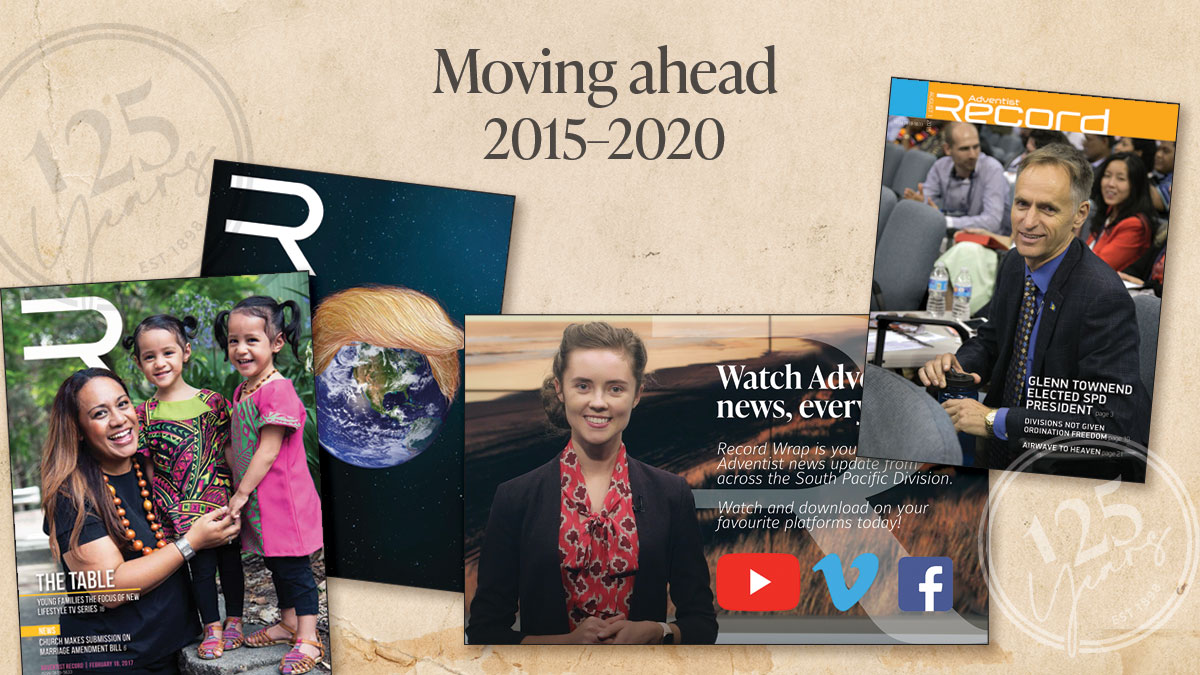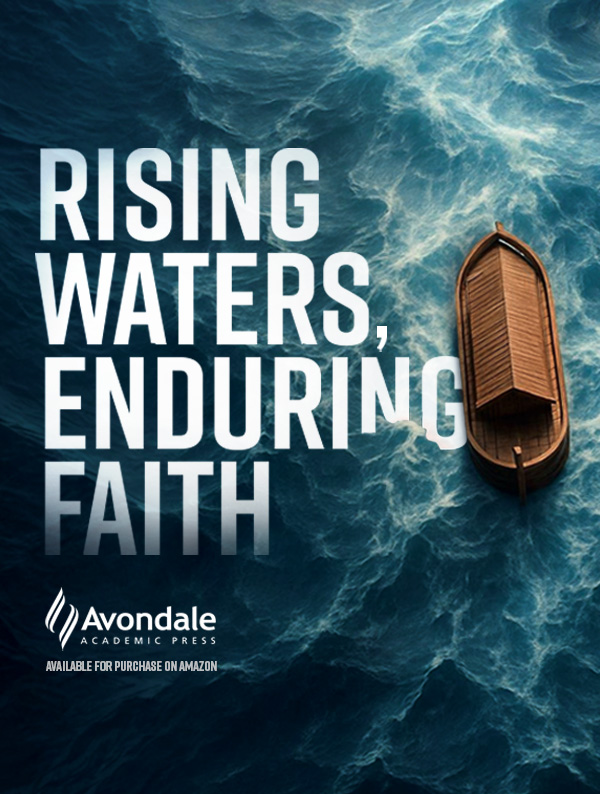Time to adapt
During the five years spanning 2015 to 2020, the world seemed to “speed up”. Social media became an essential people couldn’t live without, news became instantaneous and available as alerts on our phones, and people finally relinquished their grip on their Nokias and became minions to the giant technology companies of Samsung and Apple. With this technology transformation of the world, Adventist Record had to adapt.
During these five years, we saw Record adopt a mindset shift from being all about the magazine publications, to being more invested in immediate release of up-to-date media through our website and social media pages (Record, January 28, 2017). As the pace of the world sped up, it became a new priority to release stories, news and media instantly as it was happening, rather than restricting these stories to fortnightly prints. The highlights from these instant media releases would then be incorporated into the next magazine issue for publication.
During this time period, we saw another changeover of editorship at Record, with James Standish moving back to the United States, and Jarrod Stackelroth being appointed editor in July 2016. Under Mr Stackelroth’s leadership, the Record underwent a website overhaul in November 2016, followed by a redesign of the magazine at the start of 2017, and the distinctive R logo being introduced (Record, September 23, 2017). The new Adventist Record website won the gold award for Best Designed Website at the Australasian Religious Press Association (ARPA) awards ceremony in August 2017, and received 370,000 page views in 2017. In developing this new website, Mr Stackelroth emphasised the role of Record, saying, “We want Adventist Record to continue to tell our stories, build our community and share our hope” (Record, September 23, 2017).
In addition to this, the Adventist Record Facebook page doubled its followers in 2017 to 4000 followers (Record, December 23, 2017). The production of a couple of books and audiobooks also began during this period, as well as the Record Live digital content and Record Wrap news updates keeping viewers in the loop about news, insights and theological discussions happening around the world (Record, May 4, 2019).
Agreeing to disagree
As an assistant editor writing some of the Record Rewind columns this year, I’ve come across numerous heated topics from the past. One such theological discussion from this period which stood out was that of the topic of women’s ordination, due to the General Conference vote on the matter in 2015.
The ordination of certain women pastors in the 1970s in America1 led to a defeated vote at the 1980 General Conference Session, before the topic emerged once again in the lead up to the more recent General Conference Session in 2015 and the release of the Theology of Ordination Study Committee (TOSC) findings. Every time this topic is raised, many words are expended and passionate rhetoric flies back and forth.
Arising out of the TOSC process were three main views: women should be ordained, women should not be ordained and that not enough is known around the theology of ordination to promote it as it is currently practised. Each of these three stances were represented in the pages of Record throughout 2015 in the lead up to the 60th General Conference Session (reported in Record, August 1, 2015).
The actual question voted on at this General Conference Session was whether individual Divisions of the world church should have independent authority to allow for women’s ordination in their own territories. The vote revealed that 41 per cent of voters were in support of each Division choosing for themselves whether to ordain women, while 58 per cent of voters supported the notion of the Church remaining united in its stance towards women’s ordination (Record, August 1, 2015). Dr Michael Ryan, retired general vice president of the General Conference, when announcing the final vote declared, “There is nothing triumphal about this . . . there are no winners or losers” (Record, August 1, 2015).
It is important to remember that the vote in 2015 did not directly tackle the question of women’s ordination, but rather spoke to the independence of church Divisions around the world to determine this matter for themselves. In reflecting on the decision, South Pacific Division president Pastor Glenn Townend said, “To be an Adventist is to be a person of compassion and conviction. To stand for the Sabbath, the state of the dead and to hold distinctive doctrines takes compassion and conviction. I have felt the overwhelming power of God as people explain passion for mission, but I think if the Church for the last 40 years has been discussing women’s ordination in various ways, and haven’t come to a consensus, it’s not something that unites us. We don’t need to be uniform in everything. . . . All of our theologians cannot agree. The regions of the Church who have allowed women deacons and elders has not split us” (Record, August 1, 2015).
Dr David Trim, director of the General Conference’s Office of Archives and Statistics, noted that opinions of voters on the topic of women’s ordination have changed significantly over the decades, from only 24 per cent supporting women’s ordination in 1990, to 41 per cent supporting women’s ordination in 2015 (Record, August 1, 2015).
Pastor Townend acknowledged this growth in support for women in ministry, saying, “I am fully in support of women in ministry. And from my understanding from Scripture and the writings of Ellen White, there is no reason they should not be ordained. We don’t all agree and I respect that, too. Every time the Church has addressed this issue, it is getting closer to yes. I’m disappointed. And I know some people are really disappointed” (Record, August 1, 2015).
In addressing the hurt and disappointment felt by many at the outcome of the decision, Pastor Townend highlighted the importance of respecting each person’s decisions and reasonings for their opinions: “We want to affirm our women in ministry. We also need to think about how to move forward. This includes how we speak to those who don’t understand the diverse cultures comprising our world Church” (Record, August 1, 2015).
Also of note during this period:
- Glenn Townend was elected as president of the SPD on July 6, 2015 at the 60th General Conference Session (Record, August 1, 2015).
- Fifty-three Adventist churches across Vanuatu were destroyed by Cyclone Pam (Record, April 25, 2015).
- Ellen White was recognised by Smithsonian Magazine as one of the 100 most significant Americans of all time (Record, January 17, 2015).
1. Alberto R Timm, “Seventh-day Adventists on Women’s Ordination—A Brief Historical Overview” Theology of Ordination Study Committee (January 2014) page 6.
Olivia Fairfax is an editorial assistant at Adventist Record.






